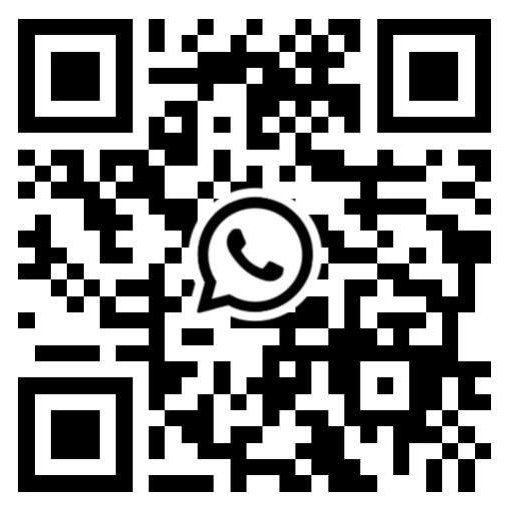In today’s fast-paced world, managing overwhelm and stress is more important than ever. Overwhelm coaching offers innovative strategies to help you regain control and find peace. Here are five unconventional and unique techniques to help you manage overwhelm and stress effectively.
1. Mess is Stress
Clutter can contribute significantly to feelings of anxiety. One effective strategy to manage overwhelm is to organize your belongings into clear containers. This way, you can easily see what’s inside, reducing the mental load of searching for items. Follow these steps:
- Clear Containers: Use transparent storage boxes for easy visibility.
- Joy Rule: Keep only items that bring you joy or are frequently used. If something is used less than once a month but you’re unsure about discarding it, place it in a “time will tell” box. If you haven’t used it in a year, it’s time to let it go.
- Declutter at least 1 item a day: Regularly assess your belongings and clear out anything unnecessary. Even if you can only get rid of 1 item a day, it will create a big declutter over the year.
This approach helps maintain a visually calm environment, reducing stress and enhancing productivity.
2. The 10-Year Rule
When something is causing you stress, ask yourself: “Will this matter to me or those I care about in 10 years?” This technique can help put your worries into perspective. If the answer is yes, it is something to focus on. If it is no, it might not be as worth getting anxious about and may help put things into perspective. This simple mental exercise can help you manage overwhelm by prioritizing your stressors and focussing on what matters.
3. Tell Other People
Being vulnerable and sharing your struggles with others can be a powerful way to manage overwhelm and stress. Contrary to popular belief, it shows strength and authenticity. Here’s why it works:
- Respect for Authenticity: People respect honesty and can relate to your experiences.
- Gain Support: Letting others know what’s on your plate can lead to support and understanding.
- Relieve Pressure: Sharing your load can make it feel lighter and more manageable.
Don’t hesitate to reach out to friends, family, or colleagues. You might find that they are more than willing to help you out.
4. Get Tested for ADHD
Sometimes, underlying conditions like ADHD can contribute to feelings of overwhelm. If you suspect this might be the case, consider getting tested. Here’s why it’s beneficial:
- Understanding Your Brain: Knowing if you have ADHD can help you understand your brain’s wiring.
- Tailored Strategies: You can develop tailored strategies to manage your time, focus, and tasks more effectively.
- Professional Support: Access to professional advice and support can make a significant difference.
Proper diagnosis and management can reduce stress and improve your overall quality of life.
5. Automate and Embrace Technology
Leverage technology to manage overwhelm, reduce stress and streamline your life. Automation can help you stay organized and prevent overwhelm. Consider these tools:
- Alexa Reminders: Set reminders ahead of time to manage tasks and deadlines.
- Google Calendar: Use calendar apps to schedule and organize your time effectively.
- AirTags: Prevent the stress of losing items by using tracking devices.
By embracing technology, you can offload routine tasks and focus on what truly matters.
Bonus Technique: Forest Bathing
Forest bathing, or Shinrin-Yoku, is a Japanese practice that involves immersing yourself in a forest environment to enhance well-being. This technique combines the benefits of nature and grounding, allowing you to reconnect with the earth and reduce stress. Here’s how to get started:
- Find a Forest: Locate a nearby forest or wooded area.
- Engage Your Senses: Fully immerse yourself by paying attention to the sights, sounds, and smells around you.
- Spend Time: Aim to spend a few hours in the forest, allowing yourself to unwind and soak in the natural beauty. Obviously, you might not do this if you have a deadline approaching, but if you feel overwhelmed in general it can be something to try.
Forest bathing can help manage overwhelm as it can lower cortisol levels, improve mood, and provide a refreshing mental reset.
Conclusion
To truly manage overwhelm and stress it can take a variety of innovative approaches and finding what works best for you. By organizing your space, connecting with nature, sharing your struggles, understanding your mental health, and leveraging technology, you can effectively reduce stress and improve your well-being. Overwhelm coaching offers these and other personalized strategies to help you navigate life’s challenges with confidence.
At OverwhelmNoMore.com, I specialize in helping individuals find balance and manage stress. Contact me today to learn more about coaching services and start your journey towards a more fulfilling life.
FAQs
How does clutter contribute to overwhelm and stress?
Clutter can create visual and mental noise, making it harder to focus and increasing feelings of anxiety. Organizing belongings into clear containers and decluttering regularly can reduce this mental load and foster a calmer environment.
What is the 10-Year Rule, and how does it help with stress?
The 10-Year Rule involves asking yourself whether a current stressor will matter in 10 years. This mental exercise helps prioritize what’s truly important, reducing anxiety about less significant concerns.
Why is talking about overwhelm with others effective?
Sharing your struggles can relieve emotional pressure, build understanding, and often lead to practical support. Being vulnerable fosters connection and allows others to assist, making challenges feel more manageable.
How can technology reduce overwhelm?
Technology can simplify life and reduce stress by helping you stay organized and managing tasks efficiently. Tools like Alexa can remind you of important deadlines, while Google Calendar helps schedule and prioritize activities. Devices like AirTags prevent the frustration of misplacing essential items, giving you peace of mind and saving time.
How can I tell if my overwhelm is related to an underlying condition like ADHD?
If you often feel overwhelmed despite trying various strategies, it might be worth exploring whether ADHD or another condition could be contributing. Symptoms like difficulty focusing, disorganization, or procrastination can signal ADHD. Getting a professional evaluation can provide clarity and open the door to tailored strategies for relief.
Why is overwhelm more intense during transitions or life changes?
Life changes often bring uncertainty and new responsibilities, which can amplify stress and overwhelm. Developing routines, seeking support, and taking one step at a time can help you navigate transitions more smoothly.


